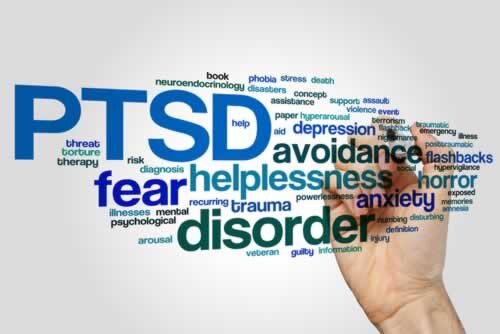Trauma is an experience or event which leaves a person feeling unsafe, incapable, or insufficient to keep themselves or others protected. Trauma might happen from one event or an individual might encounter several experiences over time. Regardless of the event or what has happened to them, reactions to trauma might be physical, mental, emotional or behavioural at present. The overall impact of traumatic events might differ in different factors, right from a person’s developmental stages, personality and insider meaning of the event, community resources, strong support in coping and more. Think, if trauma is left unprocessed, it might turn into PTSD demands a good treatment.
PTSD treatment in Woodbury, MN, helps a patient to address, co-occurring issues like depression, anxiety, substance use disorder, Etc. Comprehensive and well-designed services give individuals and families the tools required to recover after a traumatic break.
Impact of Trauma:
Trauma can have a direct effect on an individual’s lifestyle consisting of different states ranging from emotional, physical, behavioral effects, which include,
- Anxiety
- Depression
- Increase in mood swings and irritability
- Super high feelings of fear
- Sleep issues – nightmares, hyposomnia, insomnia.
- Difficulty concentrating
- Relationship Problem Issues
- Incompetence to cope with daily activities, such as school or work
- Loneliness
- Isolation
- Certain changes in the identity, who they think they are
- Migraines, chronic pains, stomach problems
- Post-Traumatic Stress Disorder
In a PTSD condition, it is common to feel afraid, sad, numb, or encounter repetitive thoughts after treating trauma. Many people recover immediately, from these symptoms, with appropriate care, support, and treatment. People who might fail to improve from trauma for specific reasons are diagnosed with PTSD.
Signs And Symptoms Of Post traumatic stress disorder
Followed by a traumatic event, symptoms might lessen over time. But when trauma doesn’t resolve, it can take the shape of PTSD. PTSD involves ongoing or deteriorating physical, emotional and psychological symptoms which disturb the mental segments and quality of life. According to mental health professionals at the National Institute of Mental Health, young adults, adolescents, and kids aged 6 and up directly align with diagnostic criteria, if they experience one of these symptoms once or twice a month.
- Recurring or distressing memories of the event
- Consistent nightmares of the event
- Flashbacks where recurring events feel like they are happening in repetition.
- Distressing upon exposure which reminds
- Mental Reactions like racing of hearts, sweating, and shaking, upon a sudden exposure to trigger reminds of events.
When a person tries to avoid some symptoms,
- A quick attempt to avoid certain memories, thoughts feelings tied to the event
- Trying to avoid remembrance of events, involving people, places, activities or objects.
- Decreased interest in enjoyable hobbies or activities
- Repetitive feelings of detachment or isolation
- Inability to feel love, contentment, or satisfaction
- Regular emotional state such as guilt, shame, terror, etc
- Blaming either oneself or other people due to negative distortion in thinking procedures
- Crtitical beliefs about the world or oneself like “this world is not a safe place to be in” “I can’t trust anyone” “I am a bad person”
Other symptoms might include:
- Feeling jumpy
- Difficulty in Sleeping
- Feeling Hypervigilant
- Self Destructive Behavior
- Anger Outburst
When is the Right Time For Getting A PTSD Treatment
Suppose a loved one is undergoing PTSD which impacts daily functioning, PTSD treatments are available at hospitals. A severe PTSD episode involves, panic attacks, terrorizing flashbacks, or stressful physical actions, including a racing heart, constant sweating, etc. During a severe activity of PTSD, people might feel stressed about sleeping or eating at a regular pace. And probably engage in destructive behaviours towards themselves or others. If you or your near loved one is suffering from a similar instance then, inpatient treatment might help. Integrative mental MN has a wide range of mental health services. Hospitalization provides, relevant, stabilized, medical care which immediately reduces stressful symptoms of PTSD and underperforming traumas. If you or a loved one is at risk of committing suicide, call or text the suicide prevention hotline at 988 or go to the emergency room immediately.
Treatments relevant to PTSD
Living with an unprocessed trauma can be exhausting, frightening and distressing. However, treatment might improve the immediate struggles at home, PTSD includes a combined line of:
- Psychotherapy
- Psychiatric Care
- Environmental Stabilization
- Group Therapy which provides support
- Other distinctive therapies, marriage, Family therapy etc.
Visit IntegrativeMentalMN to get appropriately designed post-traumatic stress disorder treatment in Woodbury, MN, plans depending on the suitability of symptoms, causing an overall impact on patient’s life. These people provide a soothing atmosphere, with perfect colours, natural colours, and plenty of windows to breathe fresh air, staffed by compassionate team members. With an appropriate continuum of behavioural treatments, children, and young adults, might receive the highest quality care for PTSD.





